Didcot Power Station demolition safety measures 'caused explosions'
- Published
The moment Didcot power station's cooling towers were demolished
Explosions that injured three people after the demolition of a disused power station were caused by safety measures installed to prevent damage.
Three onlookers suffered minor injuries and one was taken to hospital when Didcot A's 375ft (114.3m) cooling towers were demolished on 18 August.
"Shell protection" secured to one of the towers flew on to a nearby power line causing a power cut, the Health and Safety Executive (HSE) said.
It said the damage was unforeseeable.
In a report, inspectors said the demolition required a "protective wrap" to "prevent ejection of debris towards the power lines".
The details were released following a Freedom of Information request by the BBC.
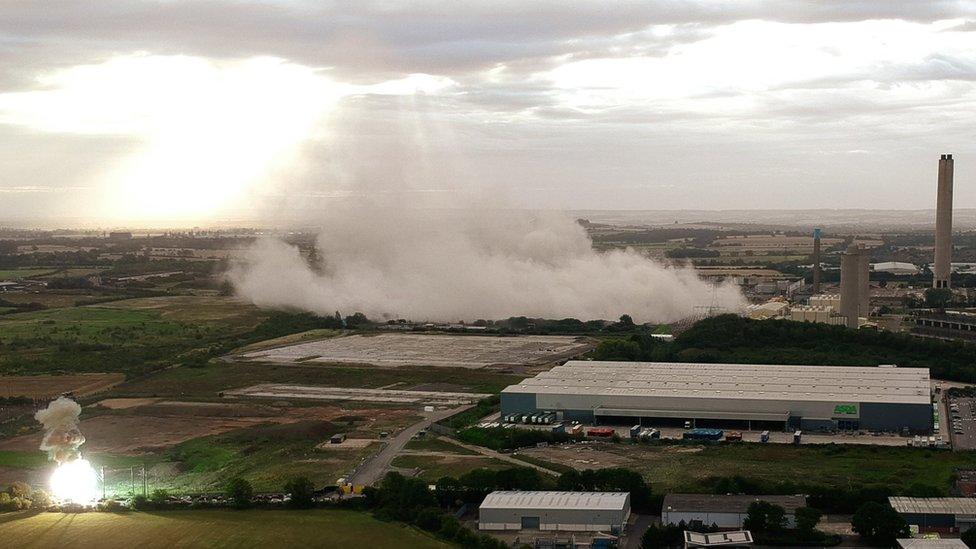
Onlookers saw an explosion as the towers fell
They added the explosive force "projected" the protection and debris "in a whip like manner away from the tower and onto the power line"
Damage to two overhead lines caused a power cut to almost 49,000 homes.
"The blowdown event was successful, but the additional measures installed to mitigate damage to the power network caused the damage themselves," the report said.
The protection on the northern tower, which had been expected to drop to the ground with the weight of concrete, ended up draped across a security fence and in the undergrowth where two 33kv power lines were laid.
The damage caused "local explosions" and further faults in the network.
Witnesses who gathered to watch the demolition saw an explosion at a sub station and an electricity pole catch fire, which was caused by an overload current and a "latent fault" in the sub station.
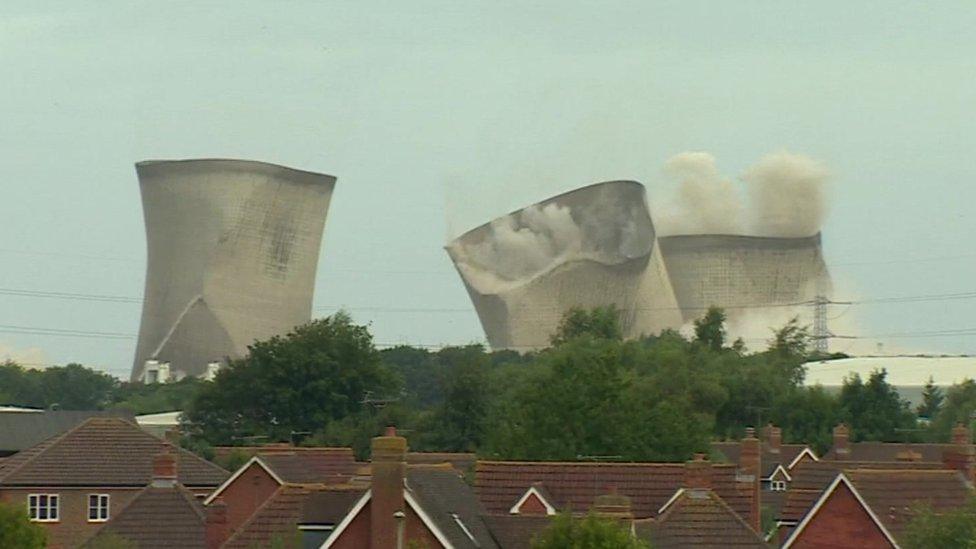
The power station has been a focal point of the Oxfordshire skyline for 50 years
Demolition contactors Brown and Mason Limited said it did "not believe, nor could have reasonably foreseen" the debris and protection hitting the power lines.
An exclusion zone had been set up around the former station, which was turned off in 2013 after 43 years in service.
The report said the damaged power lines were within the exclusion zone, but the electricity pole which caught fire and resulted in the minor injures was half a mile away from the site.
"Such an event was not foreseeable and is unlikely to be repeated," the HSE said.

Crowds gathered to watch the cooling towers being demolished
- Published18 August 2019
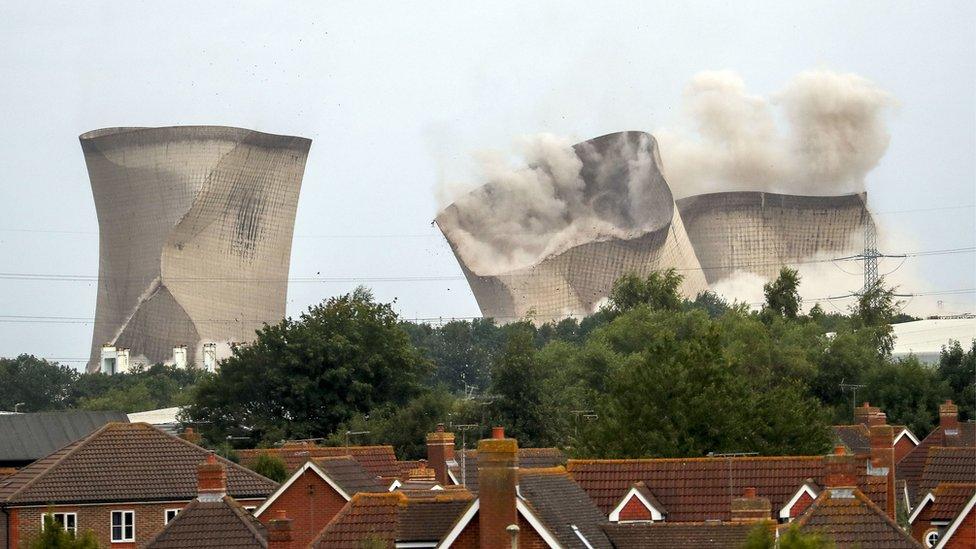
- Published16 August 2019
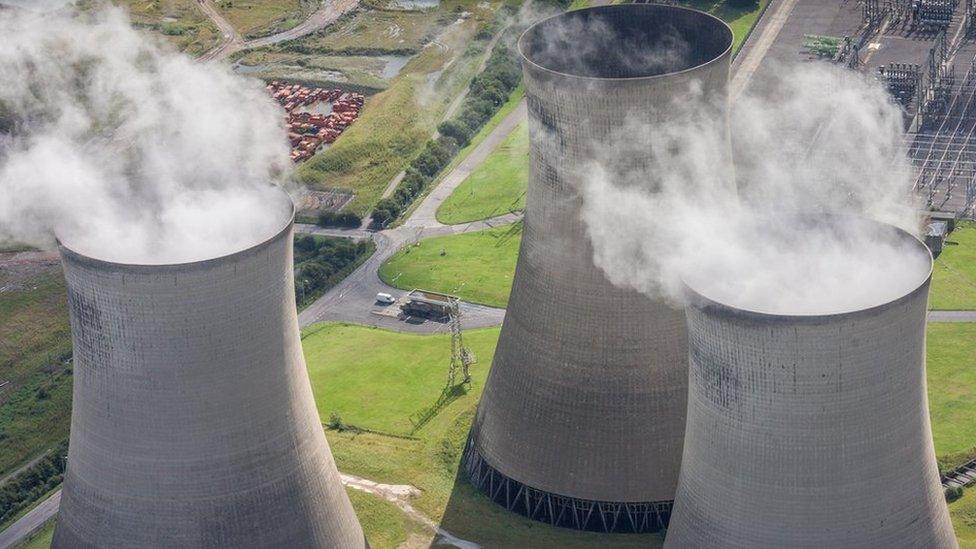
- Published18 July 2019
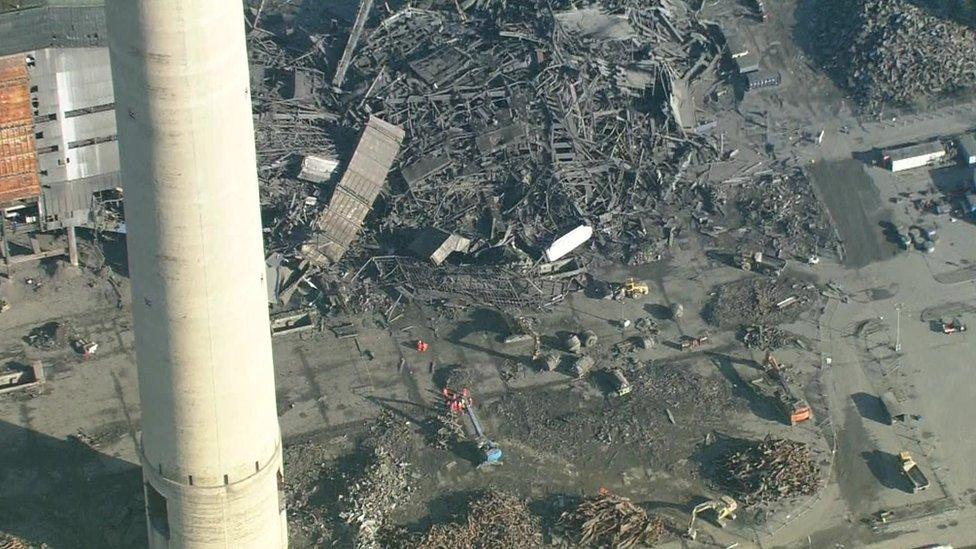
- Published23 February 2019
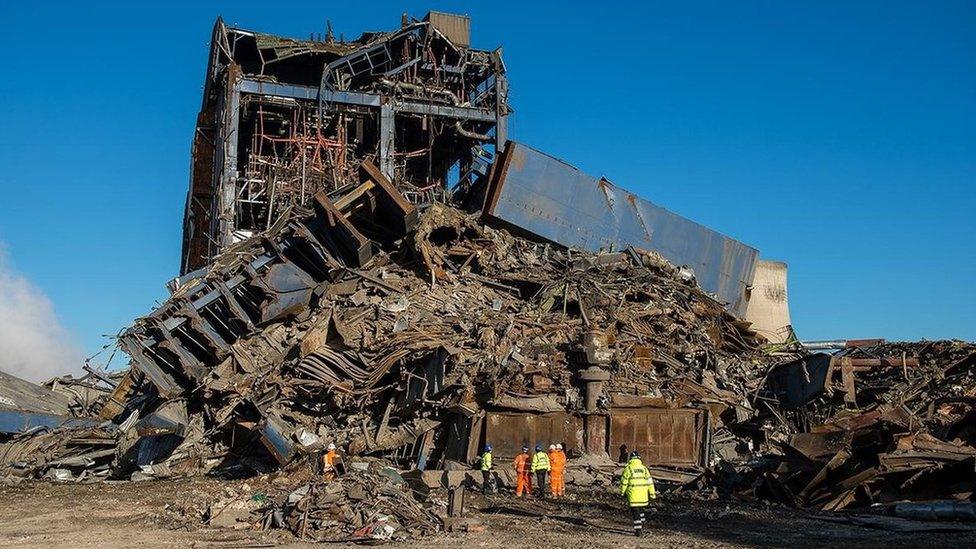
- Published19 August 2019
